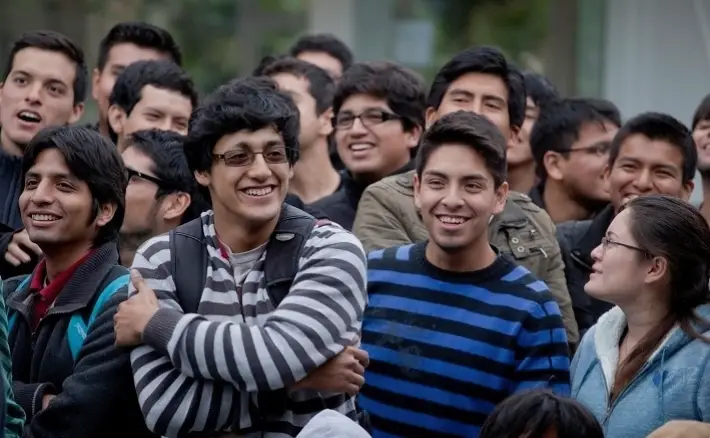Across much of Latin America, university academic offerings continue to follow an educational model inherited from the last century. The most in-demand degrees are still Law, Business Administration, Medicine, Civil Engineering, or Accounting, among other traditional professions. While these are valuable disciplines, they reveal a concerning mismatch with today’s pressing challenges in development, technology, and global sustainability.
Today’s world demands experts in data analysis, artificial intelligence, environmental sustainability, energy transition, advanced logistics, and cybersecurity. According to the World Economic Forum, the most sought-after skills for 2025 include analytical thinking, data literacy, applied AI, climate resilience, and cybersecurity.
Yet, with few exceptions, these emerging fields are neither prioritized in academic offerings nor among student preferences in the region. According to UNESCO, fewer than 10% of higher education enrollments in Latin America are in advanced technical or digital programs. Adding to this is a structural issue: many universities are still training professionals to solve local and outdated problems. For instance, in Ecuador, over 40% of new university graduates between 2020 and 2023 came from traditional programs such as Law, Business Administration, or Accounting, according to data from SENESCYT. This highlights a disconnect between what universities teach and the global skills required in the 21st-century job market.
This lag is not solely the result of institutional short-sightedness. In much of Latin America, particularly in rural or impoverished areas, unequal access to basic needs such as clean water, food security, or digital connectivity remains a structural barrier.
In the digital realm, the International Telecommunication Union (ITU) and the Inter-American Development Bank (IDB) report that only 37% of rural households have fixed internet access, compared to 71% in urban areas. This gap limits early exposure to technological careers and restricts academic choices to known, “safe,” or socially valued options. In these contexts, professional choices are guided more by the promise of stability (such as Law, Business, or Education) than by alignment with the future of work, which demands digital, technical, and global competencies. The result is a vicious cycle: those who most need social mobility tend to choose saturated or low-growth fields, perpetuating structural inequality.
While the causes are deep and structural, the solutions need not depend exclusively on the State. Latin American academia has both the capacity and the responsibility to lead a quiet but effective transformation, based on modernizing its academic offerings and aligning them with today’s challenges—without waiting for subsidies or government reforms. One concrete way to do this is through early linkage programs between universities and businesses. Higher education institutions can design dual training programs where students gain professional experience in real companies during their studies, without this being a cost to the state.
Similar models have succeeded in countries like Germany, where the private sector actively participates in training the talent it needs. According to the OECD (Organisation for Economic Co-operation and Development), this model has helped Germany maintain one of the lowest youth unemployment rates in the world: 6.2% compared to the EU average of 13.3%.
An inspiring example in the region is Uruguay’s Plan Ceibal, which since 2007 has transformed access to digital education through the mass distribution of devices and connectivity to students and teachers. Internationally recognized by UNESCO and the IDB, the program has not only reduced the digital gap but also promoted the development of technological skills from an early age—proving that educational innovation is possible in Latin America when there is long-term vision.
All of this connects to the need to guide future professionals toward new career choices, increasing interest by at least 30% in fields that respond to current market demands.
At the macroeconomic level, the link between skilled human capital and economic growth is direct. According to the World Bank, for every 10% increase in the proportion of graduates with market-aligned technological skills, per capita GDP in emerging economies can rise between 0.6% and 1.1%. In other words, a university aligned with industry not only reduces unemployment—it generates wealth. Moreover, universities can foster interdisciplinary project incubators, where students from different faculties collaborate to solve real community problems using applied technologies. International experience supports this approach: according to the Global University Entrepreneurial Spirit Students’ Survey, students who participate in interdisciplinary projects and university incubators are 56% more likely to create ventures with social or technological impact.
In Latin America, successful examples such as StartUP Peru or Tec de Monterrey have shown that university-incubated tech-based projects deliver tangible social and economic returns. A World Bank study notes that graduates who participate in university incubators increase their employability by 18%, and in some cases, their income by over 20%.
These are the spaces where Data Engineering, Automation, Territorial Analysis, or Sustainable Energy not only find technical application but also a transformative social purpose—from solar energy solutions for off-grid areas to geospatial analysis to combat deforestation or improve local farming systems. This approach transforms the university into an active platform for territorial innovation, not just a center for instruction. There’s no need to invent hard-to-apply degree programs, but rather to redesign existing ones with content, methodologies, and partnerships that make them useful for the future.
In a region with high levels of labor informality and a digital transition still beginning, universities cannot continue preparing professionals for problems that no longer exist, or for economic sectors in decline. Higher education must stop looking nostalgically to the past and start building the future—with data, science, and social commitment.
*Machine translation proofread by Janaína da Silva













